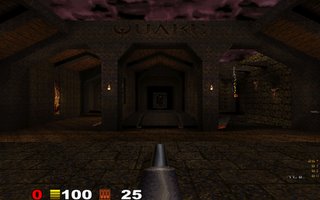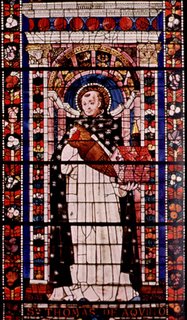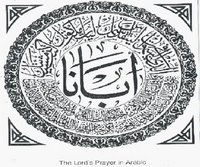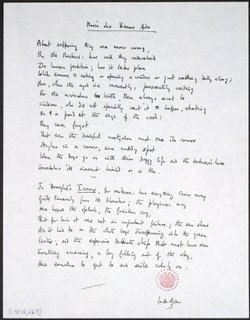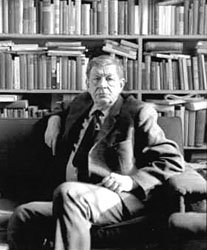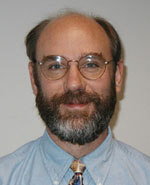
Paul determined to know nothing but Jesus and the cross. Was that enough? To answer that question, we need to answer another: What is the cross?
The cross is the work of the Father, who gave His Son in love for the world; the cross is the work of the Son, who did not cling to equality with God but gave Himself to shameful death; the cross is the work of the Spirit, through whom the Son offers Himself to the Father and who is poured out by the glorified Son. The cross displays the height and the depth and the breadth of eternal Triune love.
The cross is the light of the world; on the cross Jesus is the firmament, mediating between heaven and earth; the cross is the first of the fruit-bearing trees, and on the cross Jesus shines as the bright morning star; on the cross Jesus is sweet incense arising to heaven, and He dies on the cross as True Man to bring the Sabbath rest of God.
Adam fell at a tree, and by a tree he was saved. At a tree Eve was seduced, and through a tree the bride was restored to her husband. At a tree, Satan defeated Adam; on a tree Jesus destroyed the works of the devil. At a tree man died, but by Jesus' death we live. At a tree God cursed, and through a tree that curse gave way to blessing. God exiled Adam from the tree of life; on a tree the Last Adam endured exile so that we might inherit the earth.
The cross is the tree of knowledge, the tree of judgment, the site of the judgment of this world. The cross is the tree of life, whose cuttings planted along the river of the new Jerusalem produce monthly fruit and leaves for the healing of the nations.
The cross is the tree in the middle of history. It reverses what occurred in the beginning at the tree of Eden, and because of the cross, we are confident the tree of life will flourish through unending ages after the end of the age.
The cross is the wooden ark of Noah, the refuge for all the creatures of the earth, the guarantee of a new covenant of peace and the restoration of Adam. The cross is the ark that carries Jesus, the greater Noah, with all His house, through the deluge and baptism of death to the safety of a new creation.
The cross is the olive tree of Israel on which the true Israel died for the sake of Israel. For generations, Israel worshiped idols under every green tree. Israel cut trees, burned wood for fuel, and shaped the rest into an idol to worship. Now in the last days, idolatrous Israel cut trees, burned wood for fuel, and shaped the rest into a cross. The cross is the climax of the history of Israel, as the leaders of Israel gather to jeer, as their fathers had done, at their long-suffering King.
The cross is the imperial tree, where Jesus is executed as a rebel against empire. It is the tree of Babylon and of Rome and of all principalities and powers that will have no king but Caesar. It is the tree of power that has spawned countless crosses for executing innumerable martyrs. But the cross is also the imperial tree of the Fifth Monarchy, the kingdom of God, which grows to become the chief of all the trees of the forest, a haven for birds of the air and beasts of the field.
The cross is the staff of Moses, which divides the sea and leads Israel dry through it. The cross is the wood thrown into the waters of Marah to turn the bitter waters sweet. The cross is the pole on which Moses lifted up the serpent in the wilderness, as Jesus is lifted up to draw all men to Himself.
The cross is the tree of cursing, for cursed is every man who hangs on a tree. On the tree of cursing hung the chief baker of Egypt; but now bread of life. On the tree of cursing hung the king of Ai and the five kings of the South; but now the king of glory, David's greater Son. On the tree of cursing hung Haman the enemy who sought to destroy Israel; but now the savior of Israel, One greater than Mordecai. Jesus bears the curse and burden of the covenant to bear the curse away.
The cross is the wooden ark of the new covenant, the throne of the exalted savior, the sealed treasure chest now opened wide to display the gifts of God – Jesus the manna from heaven, Jesus the Eternal Word, Jesus the budding staff. The cross is the ark in exile among Philistines, riding in triumph even in the land of enemies.
Jesus had spoken against the temple, with its panels and pillars made from cedars of Lebanon. He predicted the temple would be chopped and burned, until there was not one stone left on another. The Jews had made the temple into another wood-and-stone idol, and Israel must have her temple, even at the cost of destroying the Lord of the temple. Yet, the cross becomes the new temple, and at Calvary the temple is destroyed to be rebuilt in three days. The cross is the temple of the prophet Ezekiel, from which living water flows out to renew the wilderness and to turn the salt sea fresh.
The cross is the wood on the altar of the world on which is laid the sacrifice to end all sacrifice. The cross is the wood on which Jesus burns in His love for His Father and for His people, the fuel of His ascent in smoke as a sweet-smelling savor. The cross is the wood on the back of Isaac, climbing Moriah with his father Abraham, who believes that the Lord will provide. The cross is the cedar wood burned with scarlet string and hyssop for the water of purification that cleanses from the defilement of death.
The cross is planted on a mountain, and Golgotha is the new Eden, the new Ararat, the new Moriah; it is greater than Sinai, where Yahweh displays His glory and speaks His final word, a better word than the word of Moses; it is greater than Zion, the mountain of the Great King; it is the climactic mount of transfiguration where the Father glorifies His Son. Calvary is the new Carmel, where the fire of God falls from heaven to consume a living twelve-stone altar to deliver twelve tribes, and turn them into living stones. Planted at the top of the world, the cross is a ladder to heaven, angels ascending and descending on the Son of man.
The cross tears Jesus and the veil so that through His separation He might break down the dividing wall that separated Yahweh from his people and Jew from Gentile. The cross stretches embrace the world, reaching to the four corners, the four winds of heaven, the points of the compass, from the sea to the River and from Hamath to the brook of Egypt. It is the cross of reality, the symbol of man, stretching out, as man does, between heaven and earth, distended between past and future, between inside and outside.
The cross is the crux, the crossroads, the twisted knot at the center of reality, to which all previous history led and from which all subsequent history flows. By it we know all reality is cruciform – the love of God, the shape of creation, the labyrinth of human history. Paul determined to know nothing but Christ crucified, but that was enough. The cross was all he knew on earth; but knowing the cross he, and we, know all we need to know.
In the Name of the Father, and of the Son, and of the Holy Spirit. Amen.


